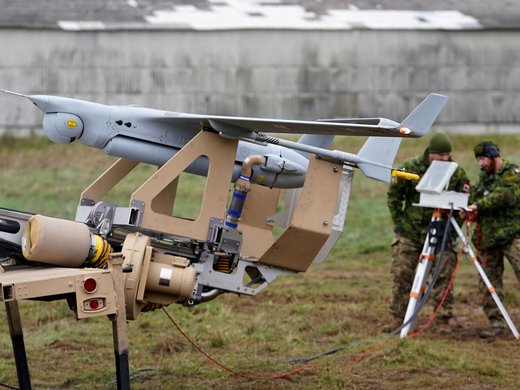As outer space and cyberspace technologies become increasingly prominent in global welfare, developing countries are keen to become more active players in the governance processes that set the rules for their use. However, their perspectives on the development of such rules, which have been shaped by past political experiences including colonialism, mean that global agreement will not be easy. Many states in the Global South are wary of rulemaking processes and outcomes that are perceived as exclusionary or discriminatory. As such, many do not share the liberal internationalist perspective of the West that promotes development of a voluntary, normative “rules-based international order.” Instead, they prefer to pursue formal legal rules and treaties that impose equal obligations and restrictions on all. Thus, while global rulemaking on emerging issues including the use of outer space is becoming much more diverse, with a growing group of participants who have deep stakes in these issues, governance may become more contentious and difficult.
The Growing Importance of Space and Cyber Technology to the Developing World
Outer space and cyber technologies are essential for the national development of poorer, post-colonial developing countries. They were not always viewed as such. Some developing countries, such as India, have long-standing space programs that have been dedicated to national socio-economic development. Until recently, however, developing countries’ efforts to develop space or cyber technologies were generally dismissed as unnecessary luxuries that were more the product of national pride than an absolute necessity, or were linked to hidden military purposes. The latter concern was the basis of significant export control regimes such as the Coordinating Committee for Multilateral Export Controls, the Nuclear Suppliers Group (NSG), the Australia Group, the Missile Technology Control Regime (MTCR), and the Wassenaar Arrangement that were imposed to prevent developing countries from acquiring such technologies.
The developmental benefits of outer space and cyberspace technologies are even more relevant today. Space-based technologies are increasingly used in a wide variety of applications in the developing world, including (but not exclusively) for communications, weather forecasting, telemedicine and tele-education, all of which are critical in remote areas. While many developing countries have long leased or purchased satellite capabilities and services, many more states are developing their own national space programs and assets or are in the process of doing so. The Union of Concerned Scientists Satellite Database indicates that at least
90 countries have owned satellites in space, with strong growth in recent years in Africa. Many of these emerging spacefaring states are developing indigenous capabilities by collaborating with established space players such as China or India. For example, China has been training technicians from countries such as Venezuela and Bolivia (Xinhua 2013; Garcia 2019).
This situation is similar to the development of cyber technologies. Internet penetration in the African continent, for example, has grown dramatically, with at least a quarter of the population having internet access, cited as a 50-fold jump in internet access since 2000 (Allen 2021). This number is expected to go up as three-quarters of Africans are projected to be internet users by 2030 (Ndung’u and Signé 2020). Rwanda, which has invested heavily in digital infrastructure that is used for telemedicine and other socio-economic services (Duarte 2021), offers an appealing model that is likely to increase digital participation on the continent even further.
Consequently, governance of such technologies is directly tied to the core interests of the Global South.
A History of Exclusion and Discrimination
Past efforts to govern access to and use of advanced technologies have largely been the preserve of the developed world. This is particularly true of outer space, where the Global South played a minimal role in the development of key treaties, including the Treaty on Principles Governing the Activities of States in the Exploration and Use of Outer Space, including the Moon and Other Celestial Bodies (Outer Space Treaty or OST); the Rescue Agreement; the Liability Convention; and the Registration Convention. Although several developing countries, including India, were nominal participants in the framing of these mechanisms, their content was largely decided based on the political and economic interests of the developed countries (van Eijk 2022). The OST, for instance, was largely focused on the superpower arms race and the fear of it spreading to outer space. Both the United States and the Soviet Union had an inherent interest in ensuring that the nuclear arms race did not enter “a completely new territory” (Grush 2017). At the time, very few developing countries had any kind of space program, nor did they have the political and economic power to make their voices heard.
Much of the developing South felt that the European Union had no right to determine what was good for the rest of the world from a space security or sustainability point of view.
This experience is not strictly relegated to the past. The International Code of Conduct for Outer Space Activities first proposed by the European Union in 2009 did not instill much confidence in the developing world due to the process through which the European Union first developed and then pushed the code to be endorsed by the rest of the international community. Much of the developing South felt that the European Union had no right to determine what was good for the rest of the world from a space security or sustainability point of view. The European Union was thus met with significant pushback from most of the South and a few of the developed countries that were not included in the process of developing the code.
This experience is also not limited to outer space. Other areas of high technology have tended to frame rules in the language of the general good while restricting access to such technologies. From the perspective of the South, developed countries from both the West and the East have used governance measures to prevent the transfer of technologies that were necessary for the development of the South. For example, the Treaty on the Non-Proliferation of Nuclear Weapons explicitly included transfer of civilian nuclear technology as part of the bargain by which states agreed not to develop nuclear weapons technology. Not only have nuclear weapons states refused to give up their weapons, but developed countries have also been reluctant to provide promised access to civilian technology, essentially nullifying this bargain. Further, developed countries went outside the framework of the treaty to create exclusive clubs, such as the NSG, to manage the governance of these technologies. The same happened on the space front with restrictive rules related to the MTCR that limited the technological capabilities of the South. Subsequently, many rules that govern access to and use of advanced technology are viewed as discriminatory for the vast majority of developing countries in the South that signed on in good faith.
This history of exclusion, discrimination and broken promises influences contemporary approaches to global governance of advanced technology currently unfolding, including the Open-Ended Working Group (OEWG) on Reducing Space Threats.
When it comes to #spacelaw, the Global South prefers rules to ensure that space is equally accessible for all nations.
— CIGI (@CIGIonline) February 3, 2023
Read "Space and Cyber Global Governance: A View from the Global South" by @raji143 to learn more: https://t.co/yBTybCEe3M pic.twitter.com/MOh7GsgmnI
Rulemaking Deal Breakers?
Given the high stakes of access to and use of advanced technology, including space-based and cyber capabilities, developing countries are no longer satisfied with being consumers and recipients of global governance but instead seek active participation in the framing of the rules. However, the process of rulemaking, the format of the rules and the content are all key issues of concern.
Inclusivity is key to both buy-in and compliance. However, inclusivity is about more than process. Making sure that interests are heard and acted upon is a deeper requirement, challenged by fundamentally different preferences for the approach to governance.
Many countries in the Global South are uncomfortable with the current focus on voluntary and normative rules of global governance that are associated with the liberal “international rules-based order” and would prefer moving toward formal legal agreements.
This dissatisfaction with a focus on norms, including on cyber global governance, is rooted in historical experience. One concern is that developing countries are generally weaker players in the international political order and fear that stronger, developed countries will find it easier to break voluntary or normative rules than legal ones. Of course, even legal rules can be broken, but the belief in the Global South is that law nonetheless encourages greater compliance than voluntary normative commitments.
Another concern is that the content of the rules will be discriminatory. Specifically, there is fear that new rules will deepen the digital and technology divide between developed and developing countries while leaving the less developed more vulnerable to security risks. The digital divide, which refers to unequal distribution of access to cyber and digital technologies, is already fairly deep because of the advantage that developed countries have. While the Global South is slowly catching up, the disparity in wealth limits how quickly that digital divide can be bridged. The South fears that new global governance mechanisms will further deepen the chasm. For example, if access to digital and cyber technologies is linked to the acceptance of liberal principles, or if such rules are seen to threaten national sovereignty, countries of the South are likely to be much more suspicious.
Concerns about discriminatory rules are reinforced by the history of Western colonialism. To cite an example on the space governance front, the EU code requires that states that agree to the code would need to frame national “policies and procedures to minimise the risk of accidents in space, collisions between space objects, or any form of harmful interference with another State’s peaceful exploration, and use, of outer space” (European External Action Service 2014, 6). On the surface, the clause seems fairly innocuous, but states in the developing South have looked at it with a sense of caution because it provides abundant scope for misinterpretation (Rajagopalan 2012). This caution comes from the historical experience of great powers making far-from-credible judgments on violations.
These process- and content-related challenges to rulemaking are likely to be accentuated by the growing intensity of great power competition that pits the West against Russia and China.
Prospects for the OEWG on Space Threats
A renewed governance effort to reduce the growing array of threats to space-based capabilities is currently under way through a UN-mandated OEWG to develop norms of behaviour, which mirrors a similar effort on the cyber front with the OEWG on the security of and in the use of information and communications technologies. This process strives to address many of the pitfalls that befell earlier attempts to mitigate space security threats, such as the previously discussed code of conduct. Adopted by UN General Assembly resolution 76/231 on December 30, 2021, the OEWG is tasked with developing recommendations on possible norms, rules and principles of responsible behaviour to reduce space security threats, including how they could inform the possible negotiation of a legally binding instrument. The working group is structured as an open-ended and inclusive process in which all interested state parties as well as civil society can participate. Yet, from the perspective of the Global South, significant challenges remain.
Many states in the Global South are committed to new legally binding measures to govern outer space. For example, at the second session of the OEWG in September 2022, the Indonesian delegation underlined the fact that “the elaboration of rules, norms and principles of responsible behaviour as well as transparency and confidence building measures would only be effective if they also lead or contribute to the formulation of a legally binding instrument on PAROS [the Prevention of an Arms Race in Outer Space]” (Republic of Indonesia 2022). The delegation added that “the absence of [a] universal legally binding instrument on PAROS opens [the] possibility of the increased risks and threats of weaponization in outer space” (ibid.). Similarly, India, in its response to the Secretary-General’s request for member states’ views, indicated that it “continues to support substantive consideration of PAROS within the multilateral framework of the UN and remains committed to the negotiation of a universally acceptable and multilaterally negotiated legally binding instrument on PAROS in the Conference on Disarmament. India remains committed to playing a leading and constructive role together with other Member States in deliberations and negotiations on legally binding measures on PAROS, as well as TCBMs [transcontinental ballistic missiles] and long-term sustainability guidelines” (India 2021). There is evidence that more states are adopting this pragmatic approach (West and Hossain 2022).
Countries such as India are also concerned that terms like “responsible behaviour” in space could be interpreted in a subjective manner, possibly hurting Indian interests in the process (European Space Policy Institute 2021). Further, those who share this view have raised concerns that their perspective is not being adequately reflected in reports by the chair. At the second session of the OEWG, Iran asserted that the chair’s summary did not reflect the views and positions of many countries, which stated that they had “difficulty with the so-called...concept of responsible behavior as a standard norm to substitute or delay the negotiation of a legally binding instrument for PAROS, which is [a] long awaited mandate of the Conference on Disarmament” (Permanent Mission of the Islamic Republic of Iran to the United Nations Office and Other International Organizations 2022, 2; Permanent Mission of the Russian Federation to the United Nations Office and Other International Organizations 2022).
Fears that the adoption of new norms of responsible behaviour in outer space will discriminate against the activities and capabilities of new and emerging spacefaring countries are also evident in statements from other countries (An 2022). Such fears are being stoked by China, which warns about efforts by one state to dominate space, and claims that proposals for new norms, such as a moratorium on destructive testing of ground-based anti-satellite missiles, discriminate against states that currently have less advanced capabilities (Song 2022).
Conclusion
Framing global rules that govern both cyber and outer-space domains has become contentious. The contentions between developed countries and the Global South are likely to make the ongoing debates in fora such as the OEWGs a lot more challenging. A history of exclusion and broken promises in outer space and other arenas has conditioned the contemporary Global South’s approaches to global governance. The Global South’s preference for a legally binding approach against the norms-based approach favoured by developed countries does not make the process easier.
Inclusivity is key. While a global governance mechanism developed through an inclusive process with diverse stakeholders from the Global South might be more challenging because it would involve finding compromises to accommodate a wide variety of voices, such an instrument will likely have greater longevity and better compliance. Lack of inclusivity is a serious obstacle to acceptance and adoption of the rules, illustrated by the inability to garner support for the EU-led code of conduct.



























